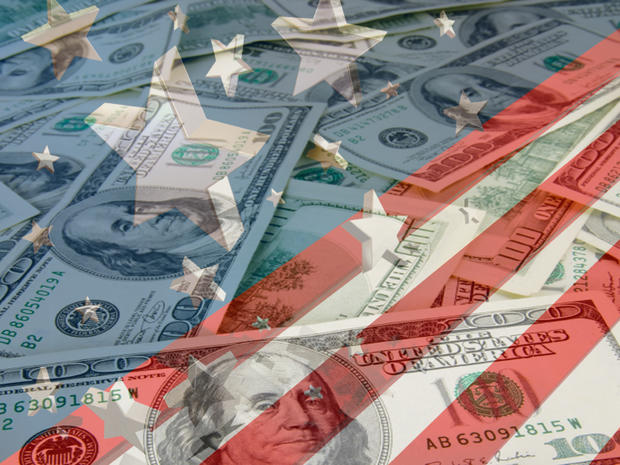Potential candidates' verbal gymnastics proves lucrative
Politicians on both sides of the aisle have been very careful this year not to call themselves presidential candidates before it's official, and it turns out there's a pretty good reason for that: Testing the waters can be very lucrative.
Marco Rubio turned to religion to make his decision, CBS News' Nancy Cordes reports.
"I have to decide through careful prayer where's the best place for me to serve this country," Rubio said in February.
Chris Christie told John Dickerson of CBS' "Face the Nation" he had another method.
"Do I want to do it? In my heart, is this something that I really, absolutely want to do?" Christie said.
"Last time you checked your heart, what did it say?" Dickerson asked.
"Oh, I don't check it on a regular basis, John. It's linear," Christie said.
This juggling act allows candidates to travel the country and raise unlimited funds without disclosing their donors.
"I won't make an announcement about a possible run for president until after my legislature is done with our state budget," Wisconsin Gov. Scott Walker said.
"I am going through the process that I think 17 or 18 other folks are going through right now," Rick Santorum said.
"It is true I am thinking about it, but for today that's not why I'm here," Hillary Clinton said last September in Iowa.
Former Florida Gov. Jeb Bush, one of the most persistent evaders, is finally expected to announce his candidacy on Monday, ending months of artful dodging during which he was rumored to be raising $100 million from groups supporting his candidacy.
"In a few months time, I'm not sure exactly when, I will make up my mind," Bush said in March.
"Look, I hope I run, to be honest with you. I would like to run. But I haven't made the decision," Bush then told Bob Schieffer on "Face the Nation" in May.
- Jeb Bush names presidential campaign manager
- Bush: "No coordination" with super PAC if I run
- Jeb Bush says he's "evolved" on out-of-wedlock births
"Until I look into a camera and say that I'm a candidate, so hopefully that will be coming soon," Bush also said.
But last month, he slipped and accidentally said, "I'm running for president in 2016."
It's the ability to raise money for political action committees, or PACs, that encourages candidates to keep testing the waters. Once they jump in, individual donations to their campaigns are capped at $2,700 and they can no longer coordinate with their PACs.
"They've pushed the envelope to the limit, and in fact they've gone beyond -- they've shredded the envelope. There's nothing left to the rules in this presidential campaign," said Sheila Krumholz, executive director of the Center for Responsive Politics.
Krumholz monitors campaign finances with her organization and said these candidates use verbal gymnastics to raise major money.
"They are doing that in order to be able to coordinate very directly with these ostensibly independent groups that ultimately will be raising millions, tens of millions, hundreds of millions of dollars for these candidates in order to advocate for their victory," she said.
These independent political groups have no donation limits and loose disclosure requirements. If Bush declares early next week, as he is expected to, he will no longer have those luxuries. That is why he and other candidates in this election cycle have delayed their official announcements.
